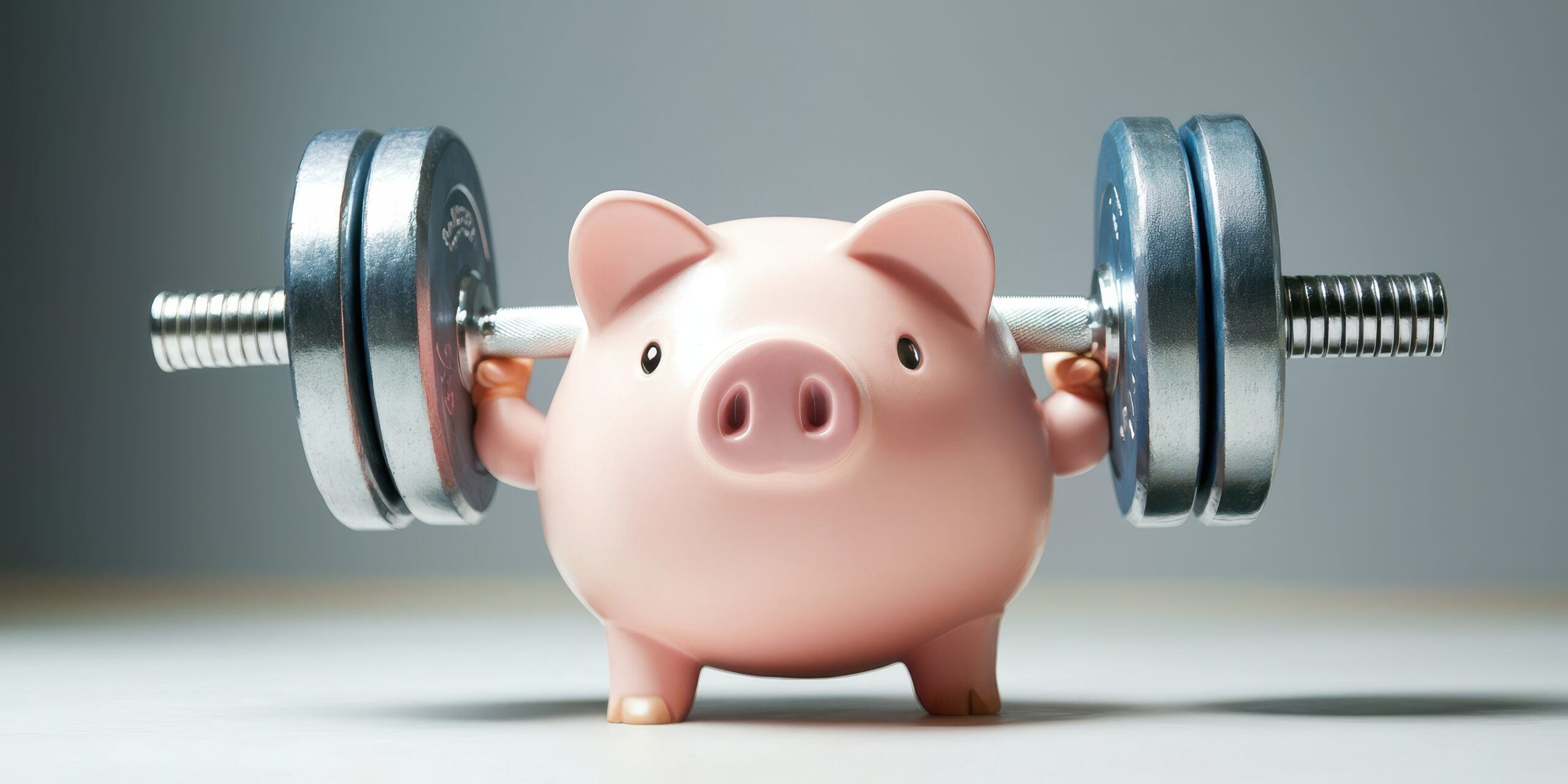Two Worlds, One Philosophy
On the surface, finance and fitness couldn’t be more different. One happens in an office, hunched over a spreadsheet or in back-to-back strategy meetings. The other plays out in a gym, drenched in sweat, pushing physical limits. But the more I’ve invested in both—as a CFO and as someone committed to personal health—the more I’ve realized they’re deeply connected.
Both demand discipline. Both require consistency. And both are long games where the payoff comes not from any single move, but from routines, reps, and tracking progress over time.
This isn’t just a cute analogy. The habits I’ve developed as a finance professional have genuinely helped me stay on track with my health. And vice versa—lessons from the gym have made me a sharper, more focused leader. Here’s how.
Routine Is Everything
In finance, we live and die by routine. Budget reviews, monthly closes, variance analysis—there’s a rhythm to it all. Without that rhythm, things fall through the cracks. The same holds true in fitness.
When I first got serious about training, I quickly realized I didn’t need to find the perfect workout. I needed a plan I could actually stick to. Just like a budget, your fitness plan isn’t about perfection—it’s about commitment and repeatability. Show up. Put in the work. Don’t chase shiny trends that promise quick results. That’s true whether you’re managing cash flow or trying to deadlift your body weight.
Fitness taught me to value showing up over showing off. Finance taught me that small improvements, repeated over time, drive real returns. It’s the same mindset—just applied to different goals.
Reps Build More Than Muscle
Repetition gets a bad rap. In business, we sometimes treat it like a rut, something to be automated or escaped. But anyone who’s trained for real strength knows: reps are everything.
You don’t get stronger by doing something once. You get stronger by doing it again and again, pushing through boredom, fatigue, and resistance. In finance, it’s the same with forecasting, auditing, or cost analysis. The first time you build a model, it’s clunky. The tenth time, it’s refined. The twentieth, it’s second nature.
Reps build confidence, pattern recognition, and mastery. Whether I’m squatting under a barbell or presenting to a board, I’m leaning on the quiet power of repetition. It’s not glamorous—but it’s where growth lives.
ROI Isn’t Just for Investors
One of the most powerful financial concepts—Return on Investment (ROI)—applies beautifully to fitness. In finance, ROI helps us determine where to put our time, money, and attention. It helps us filter distractions and focus on what delivers real value.
Fitness is no different. When I first got into the gym, I wasted time doing a bit of everything—fancy machines, random workouts, skipping rest days. Sound familiar? It’s the same mistake companies make when they chase too many priorities.
Now, I treat my workouts the same way I treat capital expenditures: I want the biggest return for the effort I’m putting in. Compound lifts like squats and deadlifts? High ROI. Sleep, hydration, and nutrition? Massive ROI. Chasing six-pack abs with crunches at midnight? Low ROI, high distraction.
Bringing that same lens into your personal life forces clarity. What’s actually moving the needle? What’s just noise? It’s a question every CFO—and every person in the gym—should ask regularly.
Accountability Matters—In and Out of the Gym
No CFO thrives in a vacuum. We answer to boards, executive teams, investors. We use dashboards, metrics, and KPIs to stay accountable. So why wouldn’t we hold ourselves to the same standard in our personal lives?
Fitness taught me to be honest with myself. You can’t fudge your way through a workout. The barbell doesn’t care what excuses you brought to the gym. You either lifted the weight or you didn’t.
That level of raw accountability made me better in my professional life. I started treating my personal health goals with the same seriousness I gave to quarterly reporting. I tracked meals, logged sleep, documented workouts—just like I’d track expenses or performance metrics.
That mindset shift also helped me empathize more with team members who were trying to build better habits. It’s tough to stay consistent. Whether it’s eating right or cutting unnecessary spending, accountability creates change.
Discipline Is the Hidden Superpower
There’s a quote I love: “Discipline equals freedom.” It’s true in fitness. It’s true in finance. And it’s absolutely true in leadership.
The discipline I’ve cultivated—both in the gym and the office—has given me freedom in ways I didn’t expect. It frees me from reactivity, because I know I have a system. It frees me from burnout, because I prioritize recovery and health. It frees me to lead confidently, because I’ve practiced showing up even when it’s hard.
And that’s the big secret: when you make discipline a daily practice, you stop relying on motivation. You just do the work. In the gym, that means squats when you’d rather sleep in. In the office, that means diving into a messy forecast when no one else wants to touch it.
Becoming the CFO of Your Own Life
Being a CFO means managing risk, driving growth, and building stability. But we often forget to apply that same lens to our own well-being. We plan for the company, but not for ourselves. We protect shareholder value, but not our health.
But here’s what I’ve learned: you can’t lead well if you’re running on empty. You can’t make high-stakes decisions when your body is crashing. And you certainly can’t model a sustainable business if your own life isn’t sustainable.
So whether you’re new to lifting or a seasoned executive, start treating your health like your most important financial asset. Because at the end of the day, your body is your balance sheet—and you only get one.
And trust me—nothing makes a spreadsheet feel more rewarding than knocking out a set of squats that once seemed impossible.
